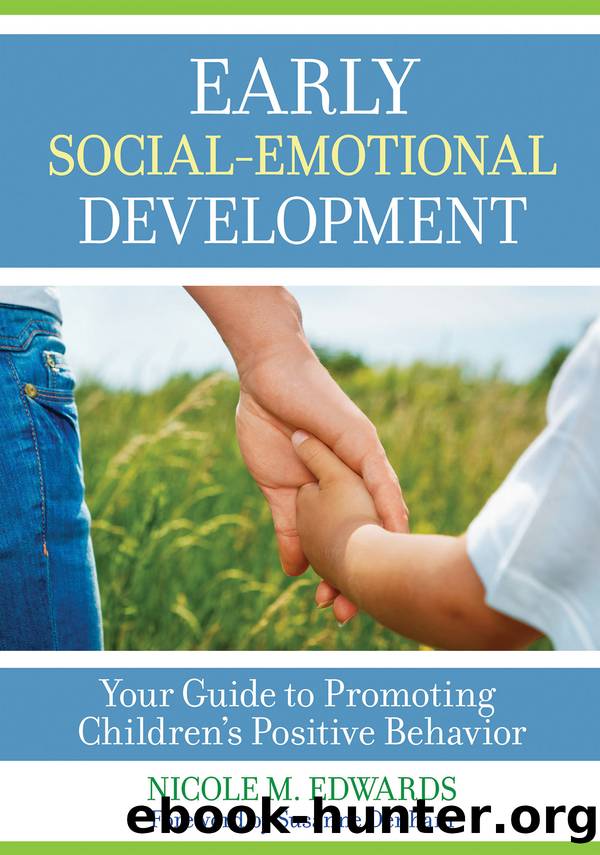Early Social-Emotional Development: Your Guide to Promoting Children's Positive Behavior by Unknown

Author:Unknown
Language: eng
Format: epub
Tags: EDUCATION / Behavioral Management, EDUCATION / Preschool & Kindergarten, FAMILY & RELATIONSHIPS / Life Stages/Infants & Toddlers
Publisher: Brookes Publishing
Published: 2018-05-07T00:00:00+00:00
As you can see, there are pros and cons to both models of service delivery. In a traditional model, for example, families have direct access to multiple specialists on an ongoing basis, but they may receive mixed messages from providers, and the collaboration among providers may be poor. In a PSP model, the family has to build a trusting rapport with, and arrange schedules to accommodate visits from, only one service provider. Arguably, this model allows for more team collaboration, but there may be some caregiver or provider hesitation depending on the match between the providerâs area of expertise and the childâs developmental needs. Furthermore, there is variation in what providers may experience within each model. For example, some providers working within a traditional model might be compensated for collaborating with other providers, or individual providers might be actively committed to connecting with and ensuring continuity across providers, even if they are not compensated for doing so.
Regardless of service model, home-based providers may at times feel isolated from other providers. They may desire more meaningful exchanges and collaborative brainstorming. As one focus group attendee shared with me: â[It] would be nice if there was a designated time during the week ⦠to sit down and bounce [ideas] off of someone ⦠[I would like more] joint decision making, joint teamworkâ (Edwards, 2018). Reflect on the extent to which you have personally seen such collaborative decision making among birthâ5 professionals in your field-based placements and/or work experience.
Providersâ Variable Dispositions and Knowledge Base
For all providers who work with children 5 years of age or younger, regardless of setting, adultsâ natural dispositions and their preservice and in-service training may influence the extent to which PBIS is implemented with fidelity. Consider the following vignette.
Download
This site does not store any files on its server. We only index and link to content provided by other sites. Please contact the content providers to delete copyright contents if any and email us, we'll remove relevant links or contents immediately.
The Lost Art of Listening by Michael P. Nichols(7506)
Rich Dad Poor Dad by Robert T. Kiyosaki(6633)
We Need to Talk by Celeste Headlee(5615)
I Love You But I Don't Trust You by Mira Kirshenbaum(3876)
The Complete Idiot's Guide to Coping With Difficult People by Arlene Uhl(3149)
Rich Dad Poor Dad: What The Rich Teach Their Kids About Money - That The Poor And Middle Class Do Not! by Robert T. Kiyosaki(2958)
A Burst of Light by Audre Lorde(2607)
The Book You Wish Your Parents Had Read (and Your Children Will Be Glad That You Did) by Philippa Perry(2528)
Dealing with People You Can't Stand by Dr. Rick Brinkman(2460)
Life Hacks by Dan Marshall(2456)
An Odyssey by Daniel Mendelsohn(2309)
The Expectant Father by Armin A. Brott & Jennifer Ash(2273)
Teach Your Child How to Think by Edward De Bono(2159)
No Time to Say Goodbye(2118)
What I Need by J. Daniels(2082)
The 7 Habits Of Highly Effective Teens by Covey Sean(2080)
The Out-of-Sync Child by Carol Stock Kranowitz(2055)
The Anxious Generation by Jonathan Haidt(2051)
I Don't Belong to You by Keke Palmer(2005)
